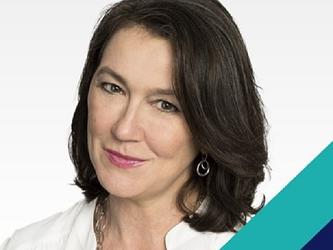Ipsos US CEO: "Understanding consumers is no longer controlled entirely by market research"
Ipsos’ global ‘Total Understanding’ project was put into place last year and saw the company reorganise into a set of specialised services and set up a client organisation of senior experts working solely with clients to help them access Ipsos’ services.
In the States, this has seen 35 senior client partner positions created, in turn leaving other roles vacant, either for internal promotions or new external hires. “Many of these people came from management positions in the company so that opened positions for other people and we promoted a number of our promising talent to run some of our services,” says Le Manh.
The company has 17 service lines in the US, plus specialist activities – so around 20 in total – and Ipsos’ recent acquisition of four divisions from GfK has created new services, one of which is user experience. “We acquired a number of assets from GfK, and at least three of them were new to us – UX was one,” says Le Manh. “We had no-one in Ipsos who had the expertise in that space because we did not have a UX group before so it made sense for us to go outside.” The company recruited Peter Mackie, formerly of Hall & Partners, to run its UX practice in North America.
“Right now, we have a lot of growth in the US, and some of our competitors are reviewing their plans,” says Le Manh, pointing to Kantar’s impending partial sale and Nielsen reviewing whether to break up the business. “We are attractive [to prospective employees] right now, so we are trying to make room for talent. If there are great people who want to join us, sometimes we reorganise how we work a little bit; maybe not fundamentally but to make room for them to show what they can do.”
Elsewhere, the addition of KnowledgePanel, GfK’s probability-based online panel, which became part of Ipsos Public Affairs, has boosted the company’s work with the US government, says Le Manh. “That’s a business that is very useful to us in some of the work we do with the US government and some large clients. If you look at the evolution of the industry there’s a number of clients who are looking for higher quality research in technical terms, almost more academic terms, so [we] see a lot of that with the government but also with tech clients.”
For the US business specifically, at the top of Le Manh’s list of priorities is moving up the value chain – as such, the company has increased its investment in analytics and advisory teams in the States. “Analytics and advisory are growing much faster; they’re growing by about 20% per year organically in the US over the past five years.”
This is particularly important because Ipsos is increasingly working with clients outside the market research department who don’t necessarily fit the traditional buyer mould. “Understanding the consumer is becoming so critical to many businesses that it is not controlled entirely by market research departments anymore,” says Le Manh. “We are working more and more with engineering teams – most of the business we do in UX, we don’t do with market research teams, we do it with engineering or design teams.” Clients also include corporate affairs, marketing teams and finance teams, where Ipsos works directly on areas such as multi-touch attribution and marketing mix modelling.
The business is also investing more in end-to-end platforms for delivery, including acquiring social intelligence company Synthesio last year and investing in its community and multi-touch attribution platforms.
In the States, Ipsos is also focused on expanding beyond its traditional heartland of consumer packaged goods, according to Le Manh. “CPG was the backbone of the business, and today we are much more balanced. They are still a very important sector to us but our business has exploded in other sectors like healthcare, internet and automotive. Also, we used to do very little with the US federal government and we do a lot now.”
And outside of the US, Ipsos is focused on specialists. “Ipsos wants to keep and increase its multi specialist strategy. That’s what we’ve always believed in – that people who are specialised know what they’re talking about and that the market is going to favour companies that can provide real specialists,” says Le Manh. This is the thinking behind the senior client organisation, he adds. “We don’t want to be 30 different companies within Ipsos – we want our clients to benefit from them working together.”

We hope you enjoyed this article.
Research Live is published by MRS.
The Market Research Society (MRS) exists to promote and protect the research sector, showcasing how research delivers impact for businesses and government.
Members of MRS enjoy many benefits including tailoured policy guidance, discounts on training and conferences, and access to member-only content.
For example, there's an archive of winning case studies from over a decade of MRS Awards.
Find out more about the benefits of joining MRS here.













0 Comments